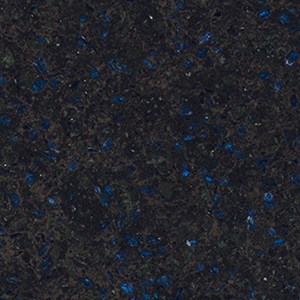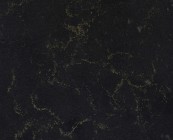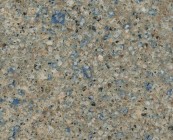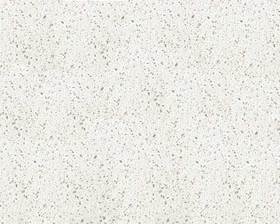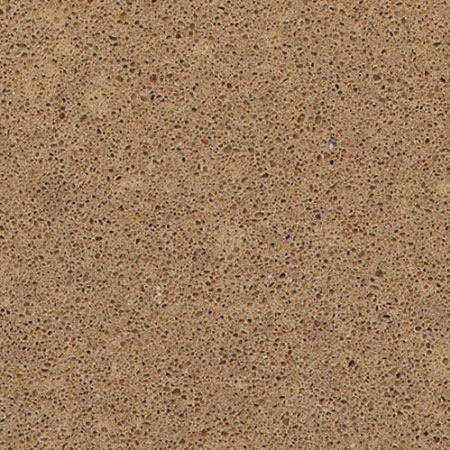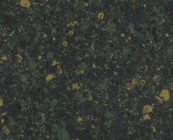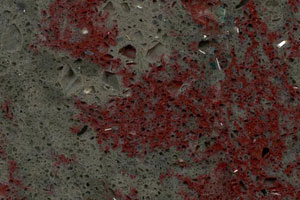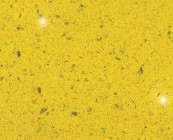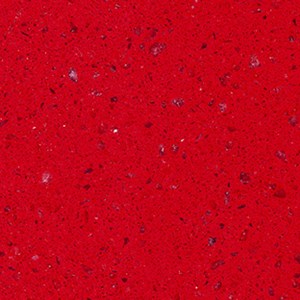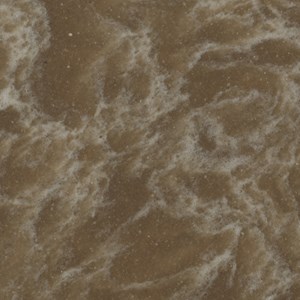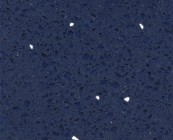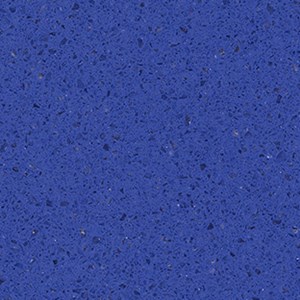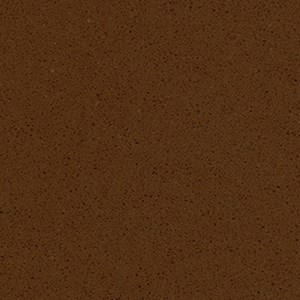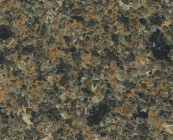Quartz Countertops
Ever since the invention of Formica in the 1920s, kitchen countertops in America have been simply covered in laminates. During the past decade, though, natural stone surfaces have landed in ever more kitchens: granite, marble, soapstone and even concrete.
But now there’s a new countertop contender on the design scene: engineered quartz. Boasting the best qualities of laminate and stone (along with its own special features), quartz began appearing in U.S. homes just a few years ago after gaining popularity in Europe for the past decade. Today, quartz countertops are exploding in popularity.
Although some quartz countertops are actually made of quarried slabs of the natural stone, the new engineered material is actually created through a manufacturing process that mixes approximately 95 percent ground natural quartz with 5 percent polymer resins and pigments. The result is a super-hard, low-maintenance, natural stone-look countertop available in a dazzling array of colors. Slabs are made in sizes similar to what you’d find at a granite warehouse. this man-made countertop material has very similar properties to granite countertops, such as: high heat, scratch and stain-resistance. Several brands make quartz countertops such as: Silestone, Caesarstone, and Cambria. Silestone and Cambia are the dominant players currently in the market.
These countertops are close to indestructible; they’re so durable that most manufacturers offer a warranty, something you won’t find with, say, granite. And quartz isn’t porous like other stone surfaces, so these countertops are much more sanitary in a home kitchen. You can keep them 99.9 percent bacteria-free. This durability also means that, unlike other types of stone countertops, quartz resists staining or corrosion from cooking oils, liquids and most household cleaning products — so there’s no need for periodic resealing of the surface.
Quartz countertops allow for a variety of edging options, just like natural stone. Unlike stone, however, engineered quartz also offers other design possibilities. Because it’s more flexible to work with and is held in place using glue and epoxy instead of screws, quartz can be used on larger vertical surfaces like backsplashes and even shower enclosures, without the fissures and seams often all too visible with natural stone.
Despite its many advantages, installation of engineered quartz countertops isn’t a job for the average do-it-yourselfer; the companies that make and sell engineered quartz certify their own installation experts. Engineered quartz is significantly heavier than other stone surfaces, there are some special installation considerations: one needs to make sure that you look at structural issues before installing quartz countertops, especially on upper floors. Installers also needs to be sure that the cabinets are sound enough to hold the weight.
Quartz counter top is considered by most the primary rival to granite as the top performing kitchen countertop. When researching luxury kitchen remodeling ideas most homeowners will consider and compare quartz vs. granite countertops. Both of these countertop materials are excellent and share very similar properties.
Quartz Colors & Patterns
- Color: You certainly will have many colors to choose from and new color and pattern designs are hitting the market all the time. Granite offers many more colors, but quartz has a complete range.
- Pattern: Although Silestone countertops, Cambria and Zodiac are all made to look like granite, purists note that quartz counter tops lack the depth of color, variety of color and unique patterns of movement that characterize granite. On the plus side, quartz countertop colors have a consistency that few granites can offer, so there’s never a problem matching slabs. quartz manufacturers are continually coming out with new colors and patterns that offer more variety.
Cleaning & Maintenance
Quartz countertops from all the brands are a snap to clean. Hot water and a sponge are sufficient for most spills and keeping your space clean while cooking. Like granite, soap is not recommended for regular cleaning since residue will build up and leave a dull film.
Engineered stone countertops are non-porous and chemical-resistant so you can use many common mild cleaners, but many cleaners are too harsh and products like bleach can permanently stain. This is a surprise to many who believe that since quartz countertops do not need sealing, that they also cannot be stained. Unfortunately, this is not true.
The best and safest recommendation is to use a good stone cleaning product (since quartz countertops are made mostly of natural stone), which will offer optical brighteners to keep you quartz super shiny. Always use cutting boards for food prep and trivets for hot pans. Yes, quartz–like granite–is very tough. Its heat and scratch resistant, but it can be damaged with extreme heat or consistent abuse.
Selected Quartz Countertops Samples
Click on the image to view a slideshow


